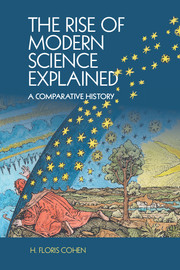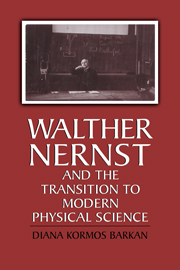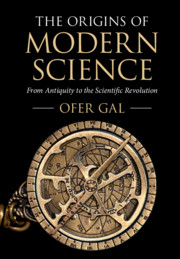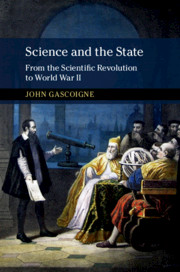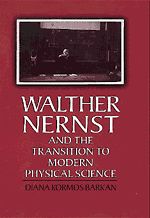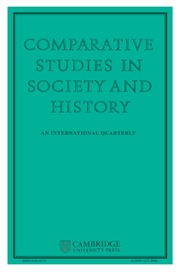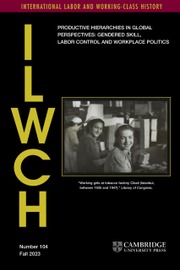The Rise of Modern Science Explained
For centuries, laymen and priests, lone thinkers and philosophical schools in Greece, China, the Islamic world and Europe reflected with wisdom and perseverance on how the natural world fits together. As a rule, their methods and conclusions, while often ingenious, were misdirected when viewed from the perspective of modern science. In the 1600s thinkers such as Galileo, Kepler, Descartes, Bacon and many others gave revolutionary new twists to traditional ideas and practices, culminating in the work of Isaac Newton half a century later. It was as if the world was being created anew. But why did this recreation begin in Europe rather than elsewhere? This book caps H. Floris Cohen's career-long effort to find answers to this classic question. Here he sets forth a rich but highly accessible account of what, against many odds, made it happen and why.
- Introduces the rise of modern science for a wide readership, drawing on decades of empirical research and careful synthesis of recent scholarship
- Demonstrates the truly revolutionary nature of the rise of modern science
- Assigns a key role to the accomplishment of individual pioneers, from Galileo and Descartes and Bacon to Newton
Reviews & endorsements
'In this fresh and boldly innovative study, H. Floris Cohen challenges the general reader with a new, long-term, global framework for thinking comparatively about the historical conditions that produced those recognizably modern forms of scientific knowledge that took root in seventeenth-century Europe.' Robert S. Westman, University of California, San Diego
'The Needham Question, first formulated by the leading biochemist and sinologist Joseph Needham in 1969, asks why modern science only emerged from Western Europe after the Renaissance and why it did not emerge from earlier civilizations whose scientific knowledge had been far in advance of the Latin West, such as China and the civilization of Islam. There has been no satisfactory answer until this book. In a brilliant tour de force, H. Floris Cohen not only solves Needham's puzzle but also provides a superb account of the so-called Scientific Revolution … Cohen's account does not rely on a supposedly simple 'key' to understanding the complex interactions between science and civilization, but depends upon a rich and complex series of connected developments. It is a final testament to the excellence of this book that Cohen's guidance through the complexities is always clear, easily understood, and entirely persuasive.' John Henry, University of Edinburgh
'Covering a period that stretches from classical antiquity to the seventeenth century, H. Floris Cohen explains to a wide readership how modern science emerged in Europe as a result of a series of historical contingencies. Cohen is to be applauded for writing a highly accessible account of one of Europe's greatest intellectual adventures.' Steffen Ducheyne, Free University of Brussels
'… Cohen's work is also designed for a popular, if learned, audience and should be on the bookshelf of every early modern historian.' Charles Gunnoe, Renaissance Quarterly
'Given the ambitious and challenging nature of Cohen's endeavor, it really should stimulate many responses - and even some alternative explanations of the rise of modern science.' John Henry, Isis
'It's a satisfying read and a coherent and exciting interpretation of the classic Scientific Revolution that thinks boldly about global and comparative perspectives. Cohen is an excellent storyteller.' William Eamon, Metascience
'This is a brilliant retelling of a complex and vexing episode, historically sensitive, which asks many of the right questions. It will have historians and nonspecialists alike talking about the Scientific Revolution with renewed vigor for years to come.' Lesley B. Cormack, Metascience
'This is truly an impressive feat of scholarship … The project that Cohen has offered to us is enormously engaging and stimulating. This volume will lead some readers back to his previous two works to explore these questions in more detail.' Babak Ashrafi, Metascience
Product details
September 2015Paperback
9781107545601
301 pages
228 × 153 × 15 mm
0.49kg
15 b/w illus. 3 tables
Available
Table of Contents
- Introduction: the old world and the new
- 1. To begin at the beginning: nature-knowledge in Greece and China
- 2. Islamic civilization and medieval and Renaissance-Europe
- 3. Three revolutionary transformations
- 4. A crisis surmounted
- 5. Expansion, threefold
- 6. Revolutionary transformation continued
- Epilogue: a look back and a look ahead
- Timeline 1: pre-1600
- Timeline 2:
- 1600–1700
- Literature
- Provenance of quoted passages
- Index.

